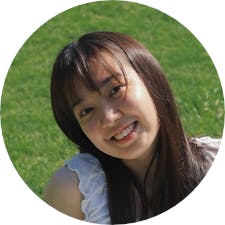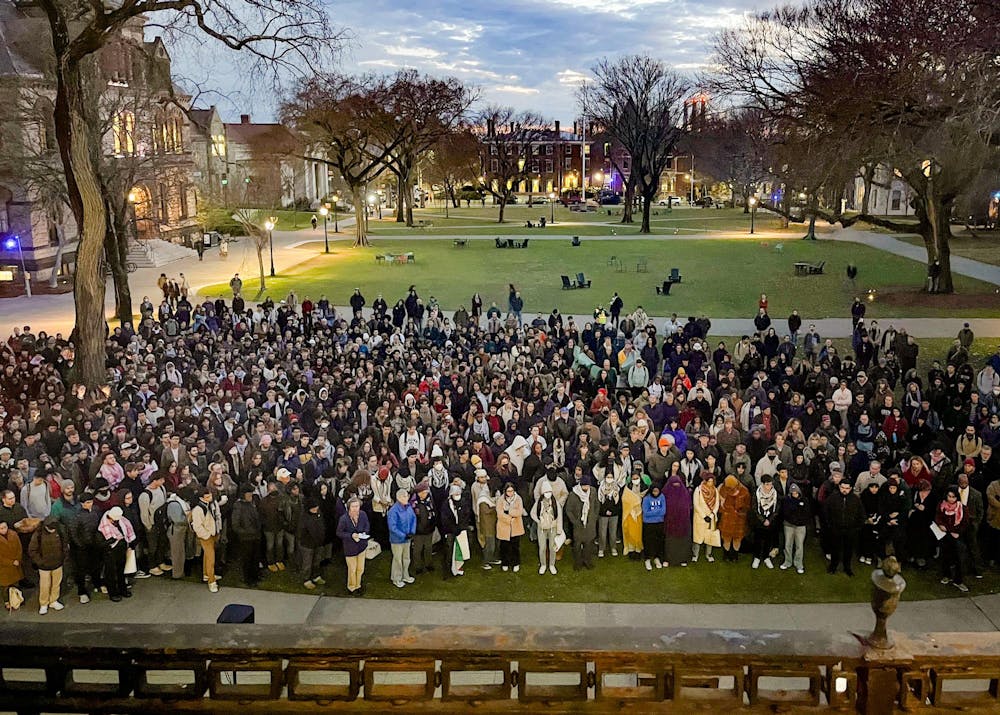Two days after he was shot and injured in a potential hate crime in Burlington, Vermont, students in ARAB 0500: “Third-Year Arabic” sat at their desks as the voice of Hisham Awartani ’25 played over the speakers.
The class was listening to audio recordings Awartani had made in past semesters as course materials.
“It was not at all part of our curriculum. We were listening to some of his recordings just for hearing his voice, for hearing him talk about Palestine,” said Lecturer in Language Studies and Assistant Director at the Center for Language Studies Elsa Belmont Flores, who teaches the class.
Awartani is one of three Palestinian students who were shot in Burlington. The FBI is currently investigating whether Awartani and the two other students, Kinnan Abdalhamid and Tahseen Ali Ahmad, were victims of a hate crime, as they were reportedly speaking Arabic and wearing keffiyeh at the time of the shooting.
The suspect, Jason Eaton, pleaded not guilty to three charges of attempted second-degree murder Monday. The three students are currently in stable condition. Awartani was the most seriously injured and is immobilized after being shot in his spine, The Herald previously reported.
The Herald spoke with students and professors who know Awartani. They described a sense of shock and anger — as well as relief for his survival.
When Professor of Palestinian Studies Beshara Doumani spoke during a Monday evening vigil for Awartani, Doumani told the crowd that to describe how he was doing, Awartani responded in Arabic: “I am steadfast.”
It was “such a Palestinian virtue and cultural component,” said Visiting Lecturer in Language Studies Michelle Quay, who teaches the graduate-level Persian class Awartani currently takes. “It really shouldn’t have surprised us that Hisham turned out to be stronger than all of us.”
“With him being that steadfast," Quay told The Herald, “it inspires you to just also be steadfast.”
Belmont Flores described Awartani — a teaching assistant for Arabic and a student studying Persian — as a “very active presence” in the University’s Arabic and Persian programs and CLS.
He frequents the center’s cultural activities and coffee hours, she said: “You name it, he’s there … way beyond what is expected from a TA.”
The two worked closely last year when Awartani and several other TAs helped Belmont Flores develop course materials for Levantine colloquial Arabic — the colloquial Arabic spoken in Palestine — that “reflected (perspectives of) youth today in Palestine,” Belmont Flores said.
Awartani’s participation in the language and cultural events, as well as involvement with curriculum design, has made him known among students studying Arabic. Belmont Flores used one of his written pieces as a class reading this year, she said.
“Through his TA involvement … Hisham has really made Palestinian culture, Palestinian society (and) Palestine today three-dimensional for our students,” Belmont Flores said. “From putting into perspective what growing up under occupation means to youth today, to talking about why he loves being young in Palestine and the social networks in Palestine, to sharing music.”
“Putting all of this into the perspective that he was attacked in a horrible crime just for doing exactly that, wearing a scarf, speaking Arabic with his friends … it’s something that we’re all still grappling with,” she said. “And I don’t think we will (make sense of it). I don’t think we should.”
“Like many members of our community, I am speechless. I’m deeply hurt. I am very, very angry,” Belmont Flores said. She described Nov. 27’s class atmosphere as “a new low” in recent weeks.
“There weren’t really words. It’s like nothing really needed to be said when we all knew what we were feeling,” she told The Herald. “Students are in shock. They are sad. They are afraid.”
After learning the news of the attack, Hana Saadi-Klein ’25 described a feeling of “disbelief.” Saadi-Klein met Awartani last year in PRSN 0400: “Intermediate Persian Language and Culture.”
“I was just very, very devastat(ed),” Saadi-Klein said.
“I frantically messaged him on any platform I could to see if he was okay,” a student who knows Awartani wrote in an email to The Herald. The student spoke on the condition of anonymity due to safety concerns. “Once he responded, I knew that he had survived, but I still feel very angry.”
Saadi-Klein noted Awartani is “a very curious, bright presence in class” — often the first to finish a test, about 20 minutes in.
“He’s always asking you about how things are,” Saadi-Klein said. He “checks in with people.”
“He is incredibly intelligent and very knowledgeable about many things,” the anonymous student wrote. “He’s just a really fun person to have a conversation with.”
Student emails asking about Awartani have trickled in since news about the shooting started circulating online, said Quay. “Even though I don’t have any more information, really, than anyone else, everyone’s just searching for that reassurance,” she said.
“I admire and also worry about my students,” Belmont Flores said. “I admire the resilience in coming to class, prepared to learn about the Arab world, in Arabic, at a time when it just seems … really heavy to do so.”
The anonymous student criticized the University for neglecting to support “Arab, Palestinian and Muslim students until after a shooting had happened to one of our students, and we are 1.5 months past the start of the war.”
“I think that along with concern and worry, there was a lot of frustration and anger felt around campus,” they wrote.
During a Monday evening vigil — called by President Christina Paxson P’19 P’MD’20 in an email Sunday — students interrupted Paxson’s speech with signs and calls for the University to divest its endowment from companies affiliated with Israel and weapons manufacturing, The Herald previously reported. Protests resumed after the vigil, with students moving toward University Hall, calling for divestment and chanting “free Palestine.”
In a previous email to The Herald, Senior Vice President for Communications Cass Cliatt noted that Paxson and other administrators have conducted outreach with “students, faculty and staff over the past several weeks … in ways that are significant and important to directly commit to care and support amid the acknowledged increase in discrimination and threats of violence across the nation and around the world.”
“It would be an unfortunate misconception to believe that the only way university leaders can or should acknowledge Islamophobia, anti-Arab and anti-Palestinian discrimination and violence, and antisemitism is through messages to the full community, because our commitment to care for individuals and communities across Brown with direct attention has continued to take many forms,” Cliatt wrote.
According to Quay, some faculty were able to get in touch with Awartani on WhatsApp, through which Awartani responded with selfies. “He’s very funny. He makes jokes,” Quay said. “Good spirits. So that was a huge relief.”
Faculty and students who know Awartani are planning potential visits to Burlington when the situation allows, both Belmont Flores and Quay told The Herald. “It’s an outpouring of support,” Quay said.

Kathy Wang was the senior editor of community of The Brown Daily Herald's 134th Editorial Board. She previously covered student government and international student life as a University News editor. When she's not at The Herald, you can find her watching cooking videos or writing creative nonfiction.

Anisha Kumar was the senior editor of community and standards of The Herald's 135th editorial board. She previously served as a section editor covering University Hall and international student life. She is a junior from Menlo Park, California concentrating in English and Political Science who loves speed-crosswording and rewatching sitcoms.





